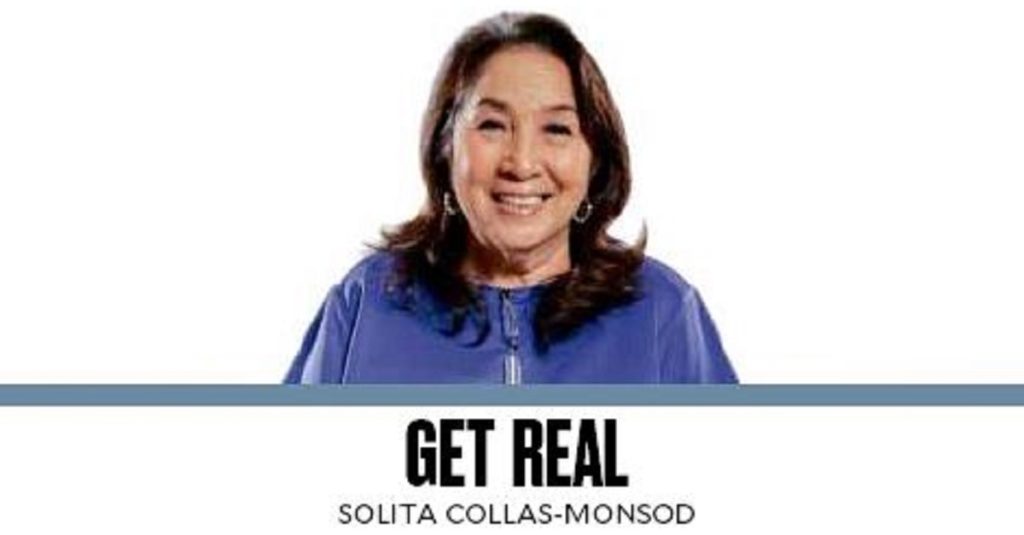The front-page picture of empty meat market stalls in this newspaper’s Tuesday issue recalled to mind the same scene I witnessed in a market somewhere in China 50 years ago.
A group of Filipinos headed by Charito Planas comprised the second “Cultural Educational Tour” that visited that country—including Behn Cervantes, Ninotchka Rosca, Spanky and Dolly Perez, Sally Zaldivar Perez, Vic Foz, and myself. Remember, Reader, this was during the so-called Cultural Revolution in China under Mao, with Mao’s wife at the peak of her political power.
Anyway, one of the things our Chinese host was asserting was how, after their “liberation” (i.e., the communist takeover), the capitalist phenomenon “inflation” no longer existed in the country. One of the examples he used was chicken, the price of which in 1971, he proclaimed, was the same as it had been in 1949.
This elicited approving oohs and aahs from some in our group, everyone looking at me (the economist) in ill-concealed triumph. The communist system was pretty good if it could beat inflation.
I asked to be brought to a market, and our hosts agreed. And that’s where I saw something similar to the Inquirer’s front-page picture. The price of chicken was the same as it was 22 years before, but there was no chicken to be had. In fact, there was not much of anything else to be had, except for what I was told was squirrel and rabbit meat. I saw no pork, no beef. Later, I learned that practically all of the products whose prices remained the same, as proclaimed by our hosts, were being rationed.
This is an extreme case of hidden inflation—the price ceiling is so low that the producers are driven out of the market. The more common situation is where prices don’t change, the required quantity is still being supplied, but the quality of the product deteriorates. I remember in my youth when there were price controls on paper, and the paper got thinner and rougher, it was difficult to write on it or print on it, and the sizes got smaller, etc.
Moral: No one, not even China, can repeal the laws of supply and demand. If prices are, by government fiat, kept below their equilibrium level, i.e., a price ceiling is imposed, shortages are bound to occur. So if you want to keep prices low without any distorting effects on production, you work with the market, not stop it from working. How? either increase supply, pushing the supply curve rightward (e.g., by improving productivity, or importing the product), or decrease demand, pushing it leftward (e.g., shift tastes away from the product). That will bring prices down. Ask any Econ 11 student who has gone three weeks into the subject, and she will show you.
——————
Question: What is the similarity between Myanmar’s Tatmadaw (armed forces) and Donald Trump? Answer: (1) They both cannot bear to lose; (2 ) they both used the same excuse—electoral fraud, that they were cheated; and (3) their reasoning is similarly ludicrous.
Trump’s being a sore loser is well known. He wanted to be reelected (as most US presidents are), but he lost. That’s when he claimed a steal—although he apparently knew he was going to lose early on, so he started talking about rigged elections seven months before the elections.
The Tatmadaw’s being a sore loser was demonstrated in 1990 when they allowed elections (sadly overestimating their popularity), only to find out that Aung San Suu Kyi’s party swept the polls. They could hardly claim fraud at the time, so they just refused to honor the elections outright. They allowed a civilian democracy in 2015 (keeping 25 percent of the parliamentary seats and I do not know how many Cabinet positions). In the 2020 elections, they were again soundly rebuffed by the populace. That’s when they claimed fraud and mounted a “coup.”
Why is their reasoning ludicrous? As we know very well (through experience), Reader, the perpetrators of electoral fraud are those who are in the seats of power—a case of using their power to stay in power. In this case, the Tatmadaw and Trump were both in power, yet they claimed they were cheated. They cannot back up their claims, of course. They’re as outlandish as saying that Cory Aquino or Leni Robredo cheated.
What is the difference between them? Trump attempted a coup, and failed. The Tatmadaw so far is succeeding, but the Burmese people are fighting back, so maybe, God and the world willing, this will be another point of similarity.
——————
solita_monsod@yahoo.com
